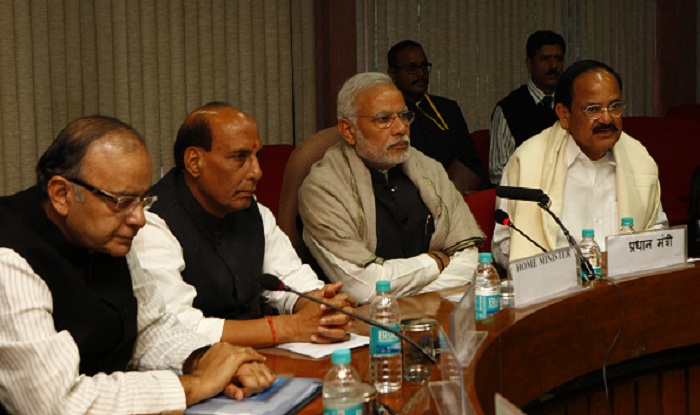On Wednesday, the Cabinet declared that ministers and members of Parliament who overstay in public homes on time will be penalised. According to new orders, those ministers & MPs who refuse to vacate these homes can further be prosecuted.
Ministers who overstay their tenure in such public homes and continue to enjoy privileges will not longer be at peace. The Cabinet apart from this also cleared the proposal of setting up of 10 nuclear reactors in the country.
Here is a full text of the official statement released by Press Information Bureau of Wednesday’s Cabinet’s decision on Public homes:
The Union Cabinet chaired by the Prime Minister Shri Narendra Modi has given its approval for amendment in Section 2 and Section 3 of the Public Premises (Eviction of Unauthorised Occupants) Act, 1971 (PPE Act, 1971), by inserting definition of ‘residential accommodation occupation’ in a new clause in section 2 of the Act and inserting provisions relating to eviction from ‘residential accommodation occupation’ in a new sub-section 3B below sub-section 3A of Section 3 of the Act.
The Amendment will enable the Estate officer to apply summary proceedings for evicting unauthorised occupants from residential accommodations allotted for a fixed tenure or for a period he/she holds office on the basis of an order of allotment on licence basis, as non-vacation of such residences leads to unavailability of houses to new incumbents.
Thus, now, the Estate Officer can make such inquiry as he deems expedient in the circumstances of the case and thus do not have to follow the elaborate procedures prescribed as per sections 4, 5 and 7 of the Act. Estate Officers can even make an order for the eviction of such persons forthwith following the procedure proposed in the new section. If such persons refuse or fail to comply with the said order of eviction, Estate Officer may evict them from premises and take possession thereof and may, for that purpose, use such force as may be necessary.
The amendment will thus facilitate smooth and speedy eviction of unauthorised occupants from government residences.
As a consequence to these amendments, Government of India can now ensure that the unauthorised occupants are evicted from government residence in a speedy and smooth manner and the vacated accommodations are made available to eligible Govt. employees thus reducing the waiting period.
The amendments will facilitate smooth and speedy eviction of unauthorised occupants from government residence, as non-vacation in time leads to unavailability of houses to new incumbents and will increase the availability of the residential accommodation benefitting the waitlisted persons.
The beneficiaries include the employees of the Central Government offices who are eligible for General Pool Residential Accommodation (GPRA) and waiting for the maturity of their turn.

















